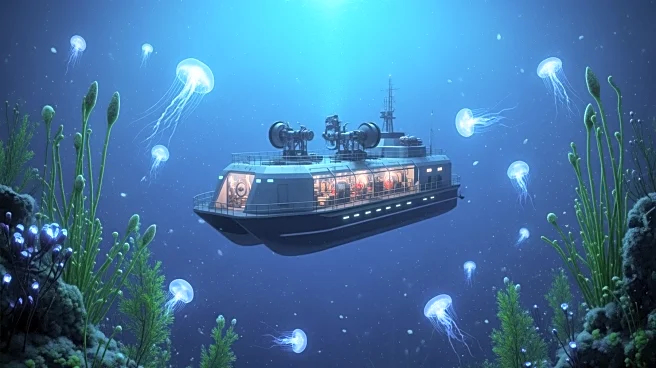What's Happening?
Researchers from the University of Bremen, led by Palash Kumawat, have discovered microbial life thriving in one of the most alkaline underwater environments on Earth, with a pH of 12. The study, conducted by analyzing lipid biomarkers, reveals how these
microbes survive in such harsh conditions. The microbes derive energy from minerals and gases, such as carbon dioxide and hydrogen, rather than sunlight, producing methane in the process. This discovery provides insights into the survival strategies of methane- and sulfate-metabolizing microbes in extreme environments.
Why It's Important?
The discovery of microbial life in such extreme conditions has significant implications for our understanding of life on Earth and potentially other planets. It challenges existing notions of the limits of life and suggests that similar life forms could exist in extreme environments elsewhere in the universe. The findings also contribute to our understanding of the global carbon cycle, as these microbes play a crucial role in processing carbon and other elements deep below the ocean surface. This research could inform future studies on the origins of life and the potential for life in extraterrestrial environments.
What's Next?
The research team plans to cultivate these microorganisms in controlled environments to further study their survival mechanisms and nutrient acquisition strategies. This could lead to new insights into the biochemical processes that enable life in extreme conditions. The findings may also inspire further exploration of similar environments on Earth and other planets, potentially leading to the discovery of new microbial species and ecosystems.
Beyond the Headlines
The study highlights the resilience and adaptability of life, even in the most inhospitable environments. It raises questions about the potential for life in similar extreme environments on other planets, such as Mars or the moons of Jupiter and Saturn. The research also underscores the importance of interdisciplinary collaboration in advancing our understanding of life's diversity and adaptability.
















